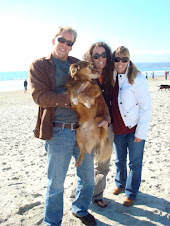Guatemala has recently emerged from a 36-year civil conflict and before that years of conquest and repression which have contributed to the current state of structural violence. The turmoil, poverty, lack of health care and education, malnutrition and machismo have created a social hierarchy, which places indigenous women at the lowest societal status. Many women and their families also suffer from interfamilial violence and are unable to extricate themselves from the situation because of their status and the reasons that contribute to it. Domestic violence impacts a large percentage of people in Guatemala and one effective step to help disseminate knowledge about ending the abuse is to teach local health professionals peacebuilding skills. Medicine and peacebuilding have an inherent connection and sustainable programs can be initiated teaching conflict transformation to medical professionals, taking advantage of their status and capabilities. Since it is virtually impossible to reach each Guatemalan woman individually, making use of community members such as midwives is a practical method to disperse information. Utilizing an existing network of community midwives in La Democracia, Huehuetenango, Guatemala, a peacebuilding workshop has been designed to build on the local midwives’ skill set, increase their ability to understand conflict and violence and their own and communities’ contribution to it, identify signs of domestic violence, and begin to eradicate it

through legal means.
While serving as a PCV in Guatemala and through the masters international program I completed my thesis and graduated (May 2009) with my Masters in Conflict Transformation from SIT Graduate Institute. For my capstone (thesis) I designed a peacebuilding training/workshop for a network of local midwives. First I facilitated training of trainers on August 14, 2009 for the Health Center Staff (5 people), the Public Prosecuter's Office (4 people) and the Municipal Women's Office (2 people) where more theory and in depth discussions took place looking at their own identity and their role in the community, and also detailing each activity of the upcoming workshop, why certain training techniques were used and what the best ways were to communicate with a mainly illiterate group. After the initial training, the health center

staff worked closely with me to facilitate the two-day workshop, August 27 & 28, 2009, for the over 75 midwives in attendance. (attached are some photos from the trainings, the numbered ones are from the initial training of trainers and the lettered ones are from

the midwife (comadrona) training) All of the trainings were done in Spanish and most of the two-day midwife workshop was also translated into Mam, the local indigenous language of the area.
 through legal means.
through legal means. staff worked closely with me to facilitate the two-day workshop, August 27 & 28, 2009, for the over 75 midwives in attendance. (attached are some photos from the trainings, the numbered ones are from the initial training of trainers and the lettered ones are from
staff worked closely with me to facilitate the two-day workshop, August 27 & 28, 2009, for the over 75 midwives in attendance. (attached are some photos from the trainings, the numbered ones are from the initial training of trainers and the lettered ones are from the midwife (comadrona) training) All of the trainings were done in Spanish and most of the two-day midwife workshop was also translated into Mam, the local indigenous language of the area.
the midwife (comadrona) training) All of the trainings were done in Spanish and most of the two-day midwife workshop was also translated into Mam, the local indigenous language of the area.







